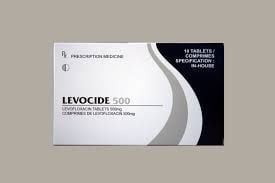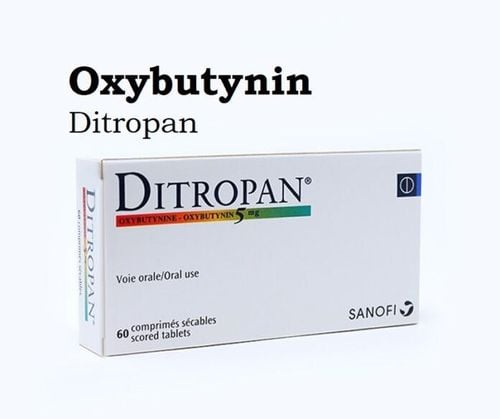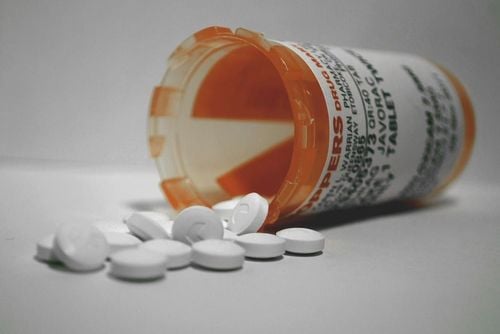This is an automatically translated article.
The article is professionally consulted by Master, Doctor Vo Thien Ngon - Department of General Surgery - Vinmec Da Nang International General Hospital
Vesicoureteral reflux syndrome in children can easily cause urinary tract infections (UTIs). If not detected and treated early, the disease can lead to kidney failure.
1. What is vesicoureteral reflux disease in children?
According to the normal mechanism of the body, urine only flows one way from the kidneys to the bladder. Urine backflow from the bladder into the kidney is called vesicoureteral reflux.When this happens, bacteria can enter the kidneys, causing a urinary tract infection. If this condition is prolonged without being detected, the ureters and renal calyces will be dilated, in the long term adversely affecting the function of the kidneys, causing kidney failure.
Vesicoureteral reflux disease is often found in infants and children under 2 years of age. Girls have a higher incidence of the disease than boys.

2. Causes of vesicoureteral reflux syndrome
Vesicoureteral reflux disease may have a primary or secondary cause. Specifically:Primary causes: Due to congenital abnormalities of the ureter, specifically, the ureter is shorter than usual, not ensuring the function of preventing urine reflux from the bladder to the ureter. It is the most common congenital cause in children; Secondary causes: vesicoureteral reflux can occur after chronic cystitis causing edema, deformity of the bladder wall and ureteral orifice; after increased intravesical pressure due to bladder neck stenosis or congenital stenosis of the urethral valve; after neurogenic bladder syndrome; after an injury or surgical intervention in the bladder triangle.
3. Symptoms and complications of vesicoureteral reflux in children
The symptoms of the disease are quite vague, so it is difficult to detect in pediatric patients, especially young children. Some clinical warning signs of vesicoureteral reflux in children are:Frequent urination, painful urination and cloudy urine, unpleasant odor; Fever, abdominal pain, diarrhea. Along with these manifestations, the baby has an upper urinary tract infection, gradually forming kidney scars. If the urine pressure from the bladder to the kidney is too high, it also reduces the perfusion of the renal units and causes scarring of the kidney. If the disease is detected late, the child may have kidney atrophy, kidney failure. Once the kidney has been impaired, it cannot be 100% restored.
4. Diagnosis of vesicoureteral reflux in children
Vesicoureteral reflux disease in children is usually detected during the first year of life. However, doctors can also identify children at risk of disease during prenatal ultrasound if the fetus has signs such as dilated ureters, hydronephrosis, dilated renal pelvis,... In this case, after giving birth, the mother needs to take the baby to be screened to see if there is a phenomenon of vesicoureteral reflux or not.For infants and young children, some methods to help diagnose vesico-ureteral reflux include:
Ultrasound: Helps the doctor see the kidneys and bladder of the pediatric patient without making the babies sick. hurt; X-ray of the bladder - urethra when urinating: Helps the doctor see the bladder, kidneys and ureters of the child. During the procedure, the doctor inserts a small tube into the child's bladder and passes fluid into the bladder through the tube. This fluid will show up on the X-ray when the bladder is full and when the baby urinates; Cystography with radiation: Used for pediatric patients with urinary tract infections. With this therapy, the doctor will put a small amount of radioactive drug into the child's blood through an intravenous line. The doctor then takes pictures of the kidneys and bladder with the help of a special device. This is a good test for detecting kidney scars; Intravenous pyelogram: Used to view the kidneys and urinary tract. The doctor will choose the appropriate diagnostic method for the pediatric patient, depending on the age, sex, number of urinary tract infections and the severity - mildness of the infection.

5. Treatment of vesicoureteral reflux syndrome in children
Based on the international classification of damage to the renal pelvis and ureter in vesicoureteral reflux disease, there will be appropriate treatment methods. Accordingly, the disease has 5 levels of damage:Grade 1: Simple ureteral reflux; Grade 2: Reflux up to the renal pelvis but not causing dilatation; Grade 3: Reflux causes mild and moderate dilatation in the ureters, renal calyces; Grade 4: Reflux causes dilation and twisting of the ureter and loss of the acute angle of the calyx; Grade 5: Reflux causes severe dilatation of the ureters, loss of images of the renal calyces. Usually, for pediatric patients with grade 1, 2 vesicoureteral reflux, medical treatment will be indicated (complete antibiotic use, no surgery). Pediatric patients with grade 3, 4 disease can be treated with medical or surgical treatment, surgery will be better. Pediatric patients with grade 5 disease will receive complete surgical treatment.
Surgical treatment is surgery to correct the abnormality between the bladder and the ureter, lengthening the ureter running in the bladder wall so that when the bladder is full of water, urine will not back up into the ureter.
Principles of surgical treatment for pediatric patients with vesicoureteral reflux:
Only perform surgery when the urinary tract infection is gone; During the dissection, the ureteral shell must be preserved; When the ureter is dilated, it needs to be reshaped; Ratio of parietal ureter/ureter diameter = 4/1 or 5/1; After surgery, it is necessary to take prophylactic antibiotics for 6-8 weeks as prescribed by the doctor. Vesicoureteral reflux in children is a disease that can cause many unpredictable complications. Therefore, when detecting that a child shows signs of illness, parents need to quickly take the child to a medical facility. At the same time, during the treatment of the disease, parents need to guide and encourage their children to strictly follow the doctor's instructions to recover soon and reduce the risk of complications.
When parents see that their child has symptoms of vesicoureteral reflux, they can take the child to Vinmec International General Hospital for examination and treatment. There is a team of well-trained, professional and experienced gynecologists; system of modern equipment, meeting international standards; professional service quality, help diagnose and treat diseases effectively.
Doctor Vo Thien Ngon has over 7 years of experience working as a urologist and surgeon at Hospitals: Hue Central Hospital, Hue University of Medicine and Pharmacy Hospital, Tam Tri Da Nang General Hospital .
Doctor Ngon with the ability to specialize in the field of examination and treatment of diseases of the Urology and Andrology system, Urology surgery, endoscopic urological surgery, Laparo urinary tract surgery, endoscopy Urinary. Currently, Dr. Vo Thien Ngon is a Urology - Orthopedic Surgery Doctor, Department of General Surgery, Vinmec Da Nang International Hospital
Please dial HOTLINE for more information or register for an appointment HERE. Download MyVinmec app to make appointments faster and to manage your bookings easily.














